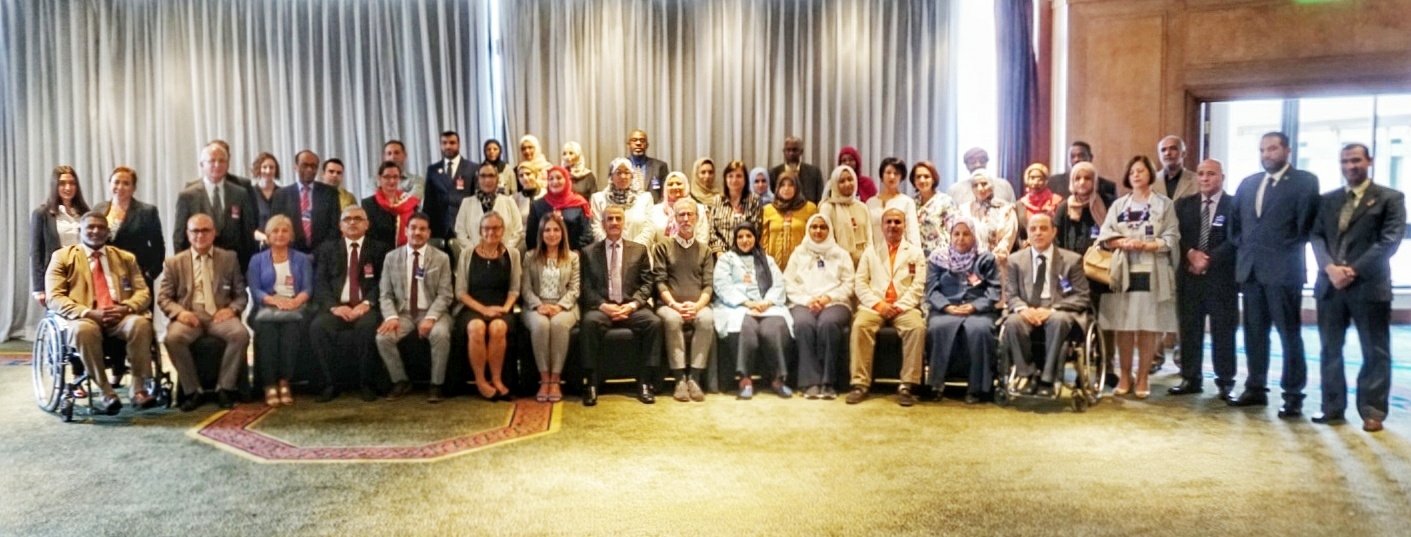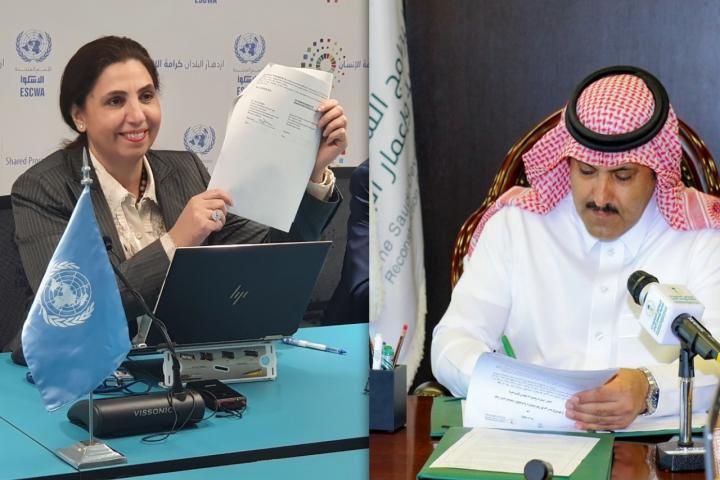The Convention on the Rights of Persons with Disabilities (CRPD) and the international framework for the Sustainable Development Goals (SDGs) require that statistics and data be disaggregated by disability whenever applicable. As illustrated in Disability in the Arab Region: An Overview (2014), disability statistics existed in most Arab countries, but they were not harmonized or comparable.
As a result, in 2016 the Social Development and Statistics Divisions of the UN Economic and Social Commission for Western Asia (ESCWA) embarked on a project with Arab countries to compile, verify and harmonize national data to the extent possible to allow for better comparability and improve national reporting. The outcome of this work resulted in an updated Disability in the Arab Region (2018) and a Regional Guidebook to Improve Disability Data Collection and Analysis in the Arab Countries (2018).
In this framework, on 18-20 September ESCWA held the first joint meeting between statisticians and policymakers from Arab countries to discuss refining the collection of data on persons with disabilities. The goal of the Inter-agency and Expert Group Meeting on Improving Disability Statistics in the Sustainable Development Goals was to start developing a framework of disability indicators for the Arab region and a related handbook on disability statistics for future methodological reference.
Participants reviewed best practices for collecting data in accordance with methodologies developed by the Washington Group on Disability Statistics and explored the use of other data sources to supplement survey and census data collected by National Statistics Offices (NSOs).
According to Ms. Neda Jafar, Head of the Statistical Policies and Coordination Unit of the ESCWA Statistics Division, “Arab national statistical offices have taken big strides and are among the first countries in the world to produce disaggregated standardized data on persons with disabilities in the areas of demography, education and work.”
In many Arab countries, when developing policies and programmes, policymakers more often rely on administrative registers, which may not show a full picture. Such data are compiled differently in each country according to the national legal and administrative procedures, therefore they are not comparable with the data collected by the NSOs through nation-wide surveys and censuses.
As stated by Ms. Gisela Nauk, Chief of the Inclusive Social Development Section of the Social Development Division, the users and producers of disability data “need to talk more about the advantages and limitations of different data sources and see how to bring them together in reality.”
In this realm, ESCWA will continue working with users and producers of disability data to develop statistics for implementing and monitoring the Convention and SDGs.
*****
For more information:
Ms. Neda Jafar: (jafar@un.org)
Ms. Angela Zettler (zettler@un.org)
Nabil Abu-Dargham +961-70-993144; email: dargham@un.org
Ms Rania Harb: +961-70-008879 harb1@un.org
Ms Myrna Mahfouz: +961-70-827372 mahfouz@un.org




